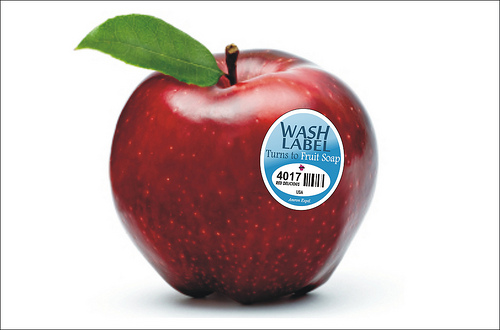"Do you wash your fresh produce at home?" is a question I get a lot. My answer is yes, but for the majority of products I don’t do it to remove pathogens. I do it for quality reasons – I hate grit in my teeth. It’s not really a wash, but a dirt rinse.
Attachment, internalization and the protection that pathogens provide themselves by living in niche microenviroments make it tough to effectively reduce risk. I rinse my stuff (the non-prewashed variety) under rushing water — but I don’t pretend that I’m doing anything but rinsing dirt off.
No vinegar, lemon juice, produce wash or dish soap. Just water.
While lots of produce washes and soaps are available at retail stores, their claims of removing pathogens in the home kitchen any better than running water are not really substantiated.
Last week a new product idea received some coverage – a produce sticker that dissolves into a soap. The product, Amron’s vanishing fruitwash labels tout that they "help remove wax, pesticides, dirt and bacteria." Would like to see some data to back that up. And some that shows they do a better job on the target organisms than water does.
